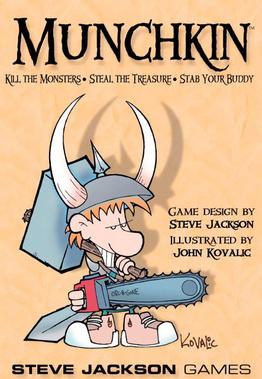This week, I wanted to talk about an issue that's potentially confusing but hugely important to traditional tabletop role-playing games: Rule Zero of RPGs.
The Game Master is Always Right
By the above, I mean that Rule Zero states that the GM always has the final say, even over the rules as written. For games where meta decision making is distributed along traditional lines, Rule Zero serves as a manual override to the rules set: in other words, it exists in case someone needs to override the rules when they result a nonsensical result. Furthermore, it serves the underlying philosophy that the rules should take a back seat if they interfere with having fun.
Rule Zero came about because in role-playing games, player creativity can produce almost unlimited options. For example, in the board game "Clue" players only have a limited number of things that they can do in their turn. However, if "Clue" was a role-playing game, Colonel Mustard would be able to set the kitchen on fire. Also, some rule sets simply have gaps. Consequently, sometimes someone needs to make a ruling about the "legality" of an action.
Rule Zero also serves as a check upon Rules Lawyers, Munchkins and/or if the players are just being rowdy in general.
Unsurprisingly, Rule Zero is the foundation of GM authority in tabletop role-playing games. Giving the final decision making to the GM is what allows the GM to override even the rules as written. It also gave rise to the proliferation of house rules and other aspects of the DIY nature of Old School games.
Of course, Rule Zero assumes that GMs will be reasonable. However, if abused, Rule Zero can lead to railroading, turning the players into an unwilling audience for the GMs fan fiction, or even the GM becoming a petty tyrant!
By contrast, some New School games, operate differently since more or all (for those games without GMs) decision making is distributed to the players. Other New School games, such as the *World games, try to constrain the GM within the rules set (though actual effectiveness of such constrains is questionable).
Rule Zero is, for the most part, an unspoken rule or referred to only obliquely. However, not only does it remain important to this day (especially in Old School games), but it also is part of the history of tabletop role-playing games and the reason why old terms for GM included "judge" and "referee".


No comments:
Post a Comment